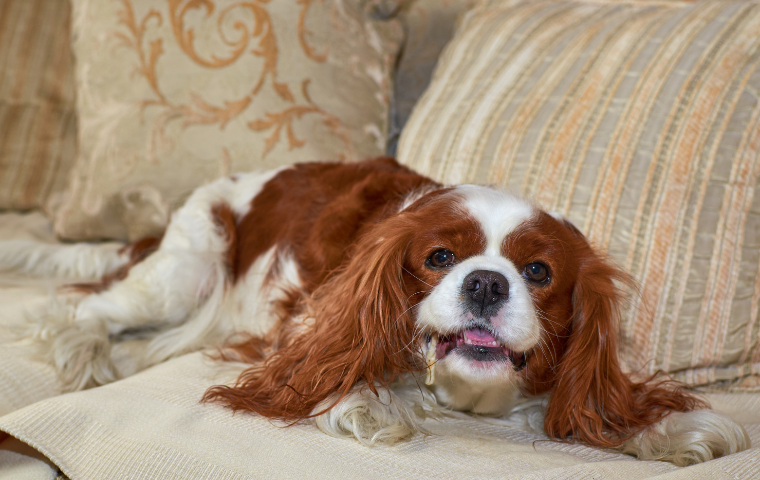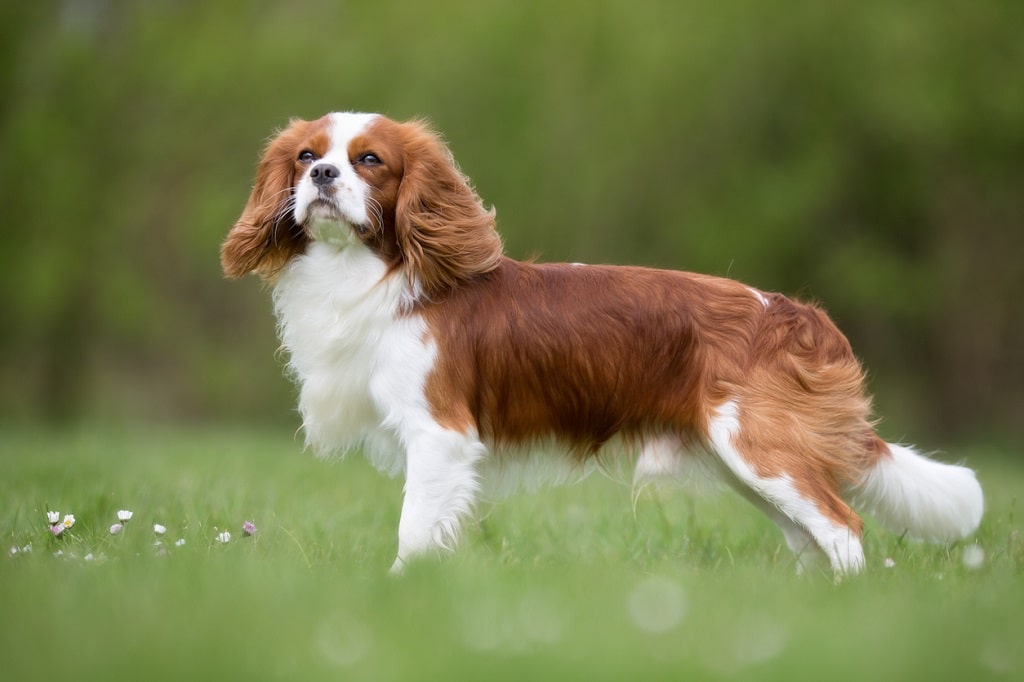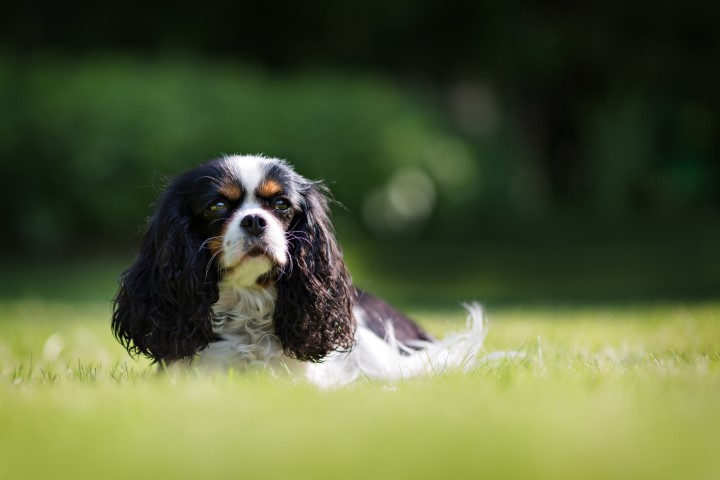If you find yourself wondering why your beloved Cavalier King Charles Spaniel seems bigger than expected, you’re not alone.
However, Understanding the factors that influence a dog’s size, such as Genetics, Breeding Practices, Diet and Nutrition, lack of Exercise, Health condition, Medications, and age.
Therefore, take time to relax and be ready to learn the reason for your Cavalier’s size as well as how to ensure a long and happy life for your cherished canine partner.
What is the reason of cavalier King Charles spaniel is so big?

Genetics: The dog’s size is influenced by its genes inherited from its parents and ancestors. If the dog comes from larger-sized parents or has a lineage with larger dogs, it is more likely to be bigger.
Breeding Practices: Irresponsible breeding or mixing with larger breeds can result in larger-than-average Spaniels.
Diet and Nutrition: Overfeeding or providing a diet rich in calories and nutrients can lead to rapid growth and larger size.
Exercise: If they don’t go on frequent walks, indoor dogs like Cavalier King Charles Spaniels are more likely to develop obesity. In terms of the amount of energy, this breed is very active.
Health: Some health conditions, such as hormonal imbalances or growth disorders, might contribute to abnormal growth and size.
Age: It’s important to consider the age of the dog since puppies will naturally grow larger as they develop into adults.
Medications: Assume that phenobarbital and glucocorticoids are consistently given to your Cavalier King Charles Spaniel. In that circumstance, there is an appropriate chance that his appetite will grow.
It’s necessary to keep in mind that medicine or illness can have an impact on his biorhythm or hunger. Make sure your Cavalier King Charles is properly fed to prevent excessive weight gain.
Background Information
Cavalier King Charles Spaniels, which belong to the toy group of dog breeds, are renowned for their affectionate and friendly nature. Originating in 17th-century England, these dogs were highly favored by royalty, including King Charles II, and later endeared themselves as cherished pets in numerous households.
Typically, they stand at around 12 to 13 inches at the shoulder and weigh between 13 to 18 pounds. Nevertheless, variations in size can emerge due to genetic factors and breeding practices. While responsible breeders adhere to kennel club standards, slight deviations may still manifest, potentially influenced by genetic inheritance from larger ancestors or mixed breeding.
Inherent variation in size is commonplace among dog breeds, and as long as the dog remains healthy and receives proper care, minor deviations from the standard size need not raise concern.
How Do I Know If My Cavalier King Charles Spaniel Is the Correct Size?
Body Shape: A fit dog should have a visibly larger chest than its stomach, creating a noticeable waist, resembling an hourglass figure when viewed from above.
Rib-Check: Place your hands on your dog’s ribcage, feeling for the individual ribs without having to press too hard. If you have to “dig” to feel the ribs, your dog may be overweight, while easily visible and palpable ribs may indicate an underweight pet.
Fat Pads: Excessive fat, typically found in specific areas like between the legs and at the top of the hips, indicates an overweight dog. Besides, Squeeze your dog gently during a petting session to check for thick layers of fat.
Behavior Changes: An overweight dog may show a lack of energy and enthusiasm for physical activities, preferring to lounge instead of playing or going for walks. Also, Difficulty breathing, panting after short walks, slower movement, and reduced tolerance to hot weather are also signs of potential weight-related issues.
What Should Do if Your Cavalier King Charles Spaniel is Too Big?
Review Diet and Nutrition: Assess your dog’s diet and nutrition. Reduce your dog’s portions and switch to high-quality dog food with balanced nutrients.
Adjust Exercise Routine: Make sure your dog is getting enough exercise. Regular physical activity is crucial for maintaining a healthy weight and overall well-being. Moreover, Engage in activities that suit your dog’s energy levels and physical abilities.
Monitor Growth: If your pet is still a puppy, monitor its growth over time. Puppies naturally grow at different rates, and some may go through growth spurts. make sure that it is gaining weight and growing at a steady and healthy pace.
Regular Vet Check-ups: Schedule regular veterinary check-ups to monitor your dog’s overall health and development. The vet can provide guidance on proper care, nutrition, and exercise, helping you address any size-related concerns.
Focus on Health and Well-being: Finally, the most significant factor is that your dog is healthy and happy. A healthy and well-cared-for dog, regardless of size, will have a fulfilling life as a cherished friend.
What are the risks of having a Cavalier King Charles Spaniel that is overgrown?

- increased risk of diabetes, heart disease, and several cancers
- extreme sluggishness and irritation
- irrational mood swings
- bladder stones in the urine
- increased pressure on the knees, joints, and bones due to osteoarthritis
- less tolerance for extremes of heat and cold
- chronic liver and kidney problems
- issues with the digestive system
- respiratory difficulties, etc.
FAQ
Which is bigger: A Cavalier or a King Charles Spaniel?
While the Cavalier weighs on average between 13 and 18 pounds (5.9 and 8.2 kg), the King Charles is smaller at 9 to 15 pounds (4.1 to 6.8 kg).
Are King Charles Cavaliers calm dogs?
Yes, In our opinion, The Cavalier King Charles has one of the most stable temperaments of all the toy breeds.
What age is a Cavalier fully grown?
Cavaliers generally mature around 12 months and reach their potential weight and size between the ages of 18 to 24 months.
Are Cavaliers lazy dogs?
No, Cavaliers can be active and energetic or lazy couch potatoes depending on their owner’s lifestyle.
Conclusion
Genetic factors, inactivity, and overeating can all contribute to variances in size among Cavalier King Charles Spaniels.
While some variance in size between different dogs is typical, it’s extremely important to make sure that the size of your pet is within a healthy range.
In addition, Regardless of size, the major goal of care for Cavalier King Charles Spaniels is to preserve their general health and well-being. If you provide your animal buddy with wholesome food, regular exercise, and the required veterinary care, they will live a happy and contented life. Accept your pet’s unique characteristics and the special bond you share with your larger-than-average canine buddy.

